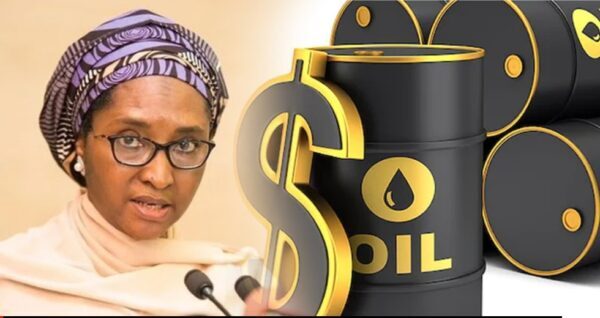
The finance minister said N3.36tn was earmarked for fuel subsidy in Nigeria’s 2023 budget.
During her presentation, Ahmed declared that fuel subsidy payments would remain up to mid-2023, based on the 18-month extension announced in early 2022.

This means fuel subsidy payments will be stopped in June 2023, after a new administration has been inaugurated following the outcome of the general elections in February, 2023.
She said, “The projected fiscal outcome in the 2023 Budget is based on the PMS subsidy reform scenario. In the 2023 Budget framework, it is assumed that petrol subsidy will remain up to mid-2023 based on the 18-month extension announced early 2022.

“In this regard, only N3.36tn has been provided for the PMS subsidy. There will be tighter enforcement of the performance management framework for Government-Owned Enterprises that will significantly increase operating surplus/dividend remittances in 2023.”

On the Federal Government’s revenue, the minister said as of November 2022, the sum of N6.50tn was generated.
This, she added, is about 87 per cent of the prorated target of N7.48tn.
She put the share of the Federal Government’s oil revenues at N586.71bn representing 35.7 per cent performance, while non-oil tax revenues totalled N2.09tn – a performance of 123.3 per cent
She stated that the Companies’ Income Tax and Value Added Tax collections were N1.08tn and N295.2bn, representing 158.6 per cent and 124.3 per cent of their respective targets.
Ahmed added that Customs’ collections comprising import duties, excise, fees, and special levies exceeded the target by N15.42bn.
On actual spending from the 2022 budget, she said as of November 30, it was N12.87tn
Of this amount, N5.24tn was for debt service; N3.94trn for personnel costs including pensions; statutory transfers while overhead and service-wide vote expenditures amounted to N8.1tn.
She also said the economy was no longer dependent on oil.
“We can no longer be termed a mono-economy. The Nigerian economy is now diversified,” she asserted.
Ahmed attributed the change to the revenue increase from non-oil sectors.
She added, “The non-oil sector is now generating more revenue for the nation while oil and gas, and mining sectors are pulling back the economy. The major non-oil contributors to the country’s revenue are agriculture and financial services.”
The finance minister further said that the president would sign the Finance Bill 2022 “in a couple of days”.
She attributed the delay to the president’s insistence that legal experts must scrutinise the Bill.
Missing stamp
The finance minister further said that the allegation of missing stamp duty revenue is currently being investigated by the National Assembly and security agencies.
Ahmed said if the allegation proves to be true and funds were recovered, it would help the government to finance its huge budget deficit.
A member of the House of Representatives, Muhammed Kazaure, had alleged the theft of N89.1tn stamp duty proceeds, accusing the CBN Governor, Godwin Emefiele, of being behind the missing money.
The minister said both the oil and mining sectors were pulling the national economy back. She also pointed to the costly fuel subsidy regime as a major drain on the economy.
The minister said the oil sector only contributed 22 per cent to the economy in 2022, a development she said was an indication that “the economy is truly, truly diversified.”
Ahmed said the non-oil sector, driven by communications and agriculture, has grown the economy significantly.
Ahmed also disclosed that the government recorded N18.14tn aggregate expenditure, including the supplementary budget in the 2022 budget implementation.
N6tn lost
The finance minister also said that the FG would be exiting some industries from the pioneer tax incentive list; even though she acknowledged that it might be an unpopular move that is likely to draw public criticisms.
She, however, added that infant industries would be included on the list to enjoy tax incentives to encourage their survival.
As regards tax waivers, she stated that a total of N6tn had been forgone between 2021 and to date under the tax waiver scheme, insisting that phasing out the tax waivers will help increase the government’s revenue.
The PUNCH recently reported that the Federal Government gave tax reliefs and concessions valued at N16.76tn to large companies between 2019 and 2021.
As of the end of 2021, 46 companies had benefited from various tax incentives and duty waiver schemes, while the requests of 186 companies were still pending.
Media also reported that at least 172 companies might not benefit from about N2.4tn tax waivers under the Pioneer Status Incentive and other tax exemptions as the FG moves to phase out tax waivers effective 2022.
 MMS PLUS NG – Maritime, Aviation, Business, Oil and Gas News Online Newspaper with coverage in Maritime, Oil and Gas, Aviation, Power and Energy as well as Financial News
MMS PLUS NG – Maritime, Aviation, Business, Oil and Gas News Online Newspaper with coverage in Maritime, Oil and Gas, Aviation, Power and Energy as well as Financial News









